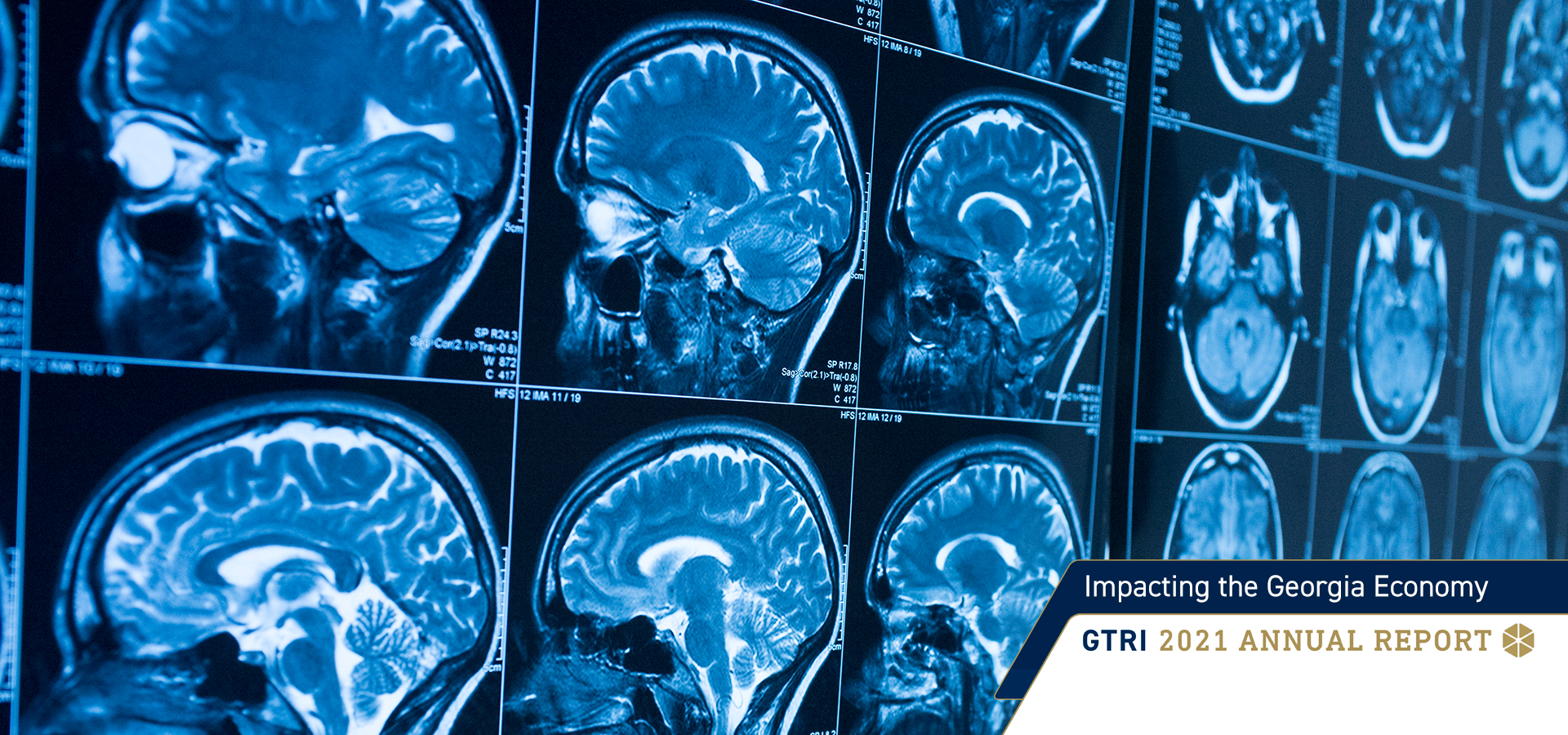
A new and comprehensive database of healthcare claims paid in the state of Georgia will help identify disease trends, provide information for making public policy decisions, facilitate new research – and offer a way for consumers to determine the average cost of common procedures such as knee replacement or diagnostic testing such as MRIs.
Administered by Georgia Tech’s Center for Health Analytics and Informatics (CHAI), the Georgia All-Payer Claims Database (GAPCD) will move Georgia into the ranks of more than two dozen states that provide such a pathway to healthcare cost and quality transparency. Scheduled to launch by January 2023, the GAPCD will include de-identified data from patients and most public and large private payers of healthcare costs.
“The GAPCD will be a significant new resource for health discovery and research in the state, facilitating an understanding of issues around healthcare costs, quality utilization and healthcare disparities,” said Jon Duke, director of the Center, and a principal research scientist at the Georgia Tech Research Institute (GTRI). “With it, we will be able to look at questions that we have not been able to thoroughly explore before because it will go beyond data maintained by individual health systems. We will be breaking new ground.”
In other states, similar systems have provided crucial insights into the health of state residents and helped guide efforts aimed at reducing tobacco or opioid use and battling specific health issues. The database may also generate research that informs the state’s healthcare professionals in selecting the best treatments for Georgians dealing with such common problems as high blood pressure or lower back pain.
Beyond the policy and treatment issues, the GAPCD will help provide information for consumers considering elective procedures such as knee or hip replacement, and common diagnostic tests such as MRIs and CT scans. It will also provide a measure of the outcomes from procedures to help patients and healthcare professionals determine, for example, whether medication or physical therapy might be the best approach to addressing a specific condition.
“On a public level, we can create dashboards and websites that enable people to shop for care and understand what are the expected costs of different types of procedures at different care sites. We can additionally provide information to agencies within the state and other parties about healthcare topics of particular importance to them,” Duke explained.
For university researchers, the database will provide a new source of data on the health of millions of Georgia citizens.
“We are working through a lot of the details,” Duke said. “We’re putting together the building blocks for what an APCD will look like in the state of Georgia.” This work is being led by the Georgia Office of Health Strategy and Coordination in collaboration with other state agencies.
The GAPCD was created by the Georgia General Assembly in 2020. The legislation mandated an advisory council composed of healthcare providers, insurance companies, legislators, state health agencies and other stakeholders with an interest in its operation.
“The objectives of the GAPCD shall be to facilitate data-driven, evidence-based improvements in access, quality and cost of health care and to promote and improve public health through the understanding of health care expenditure patterns and operation and performance of the health care system,” the enabling legislation said.
Because of the state’s size, demographics, differing health systems and mix of rural and urban areas, Georgia’s healthcare needs are different from those of other states, Duke said. “There will be things that will be quite similar, and if we see things that are different, we’ll be able to ask what is different about our population, so there are a lot of opportunities to improve understanding of the health of Georgians so we can better meet those needs.”
The information exchange could also be a two-way street, identifying what kinds of information would be useful to healthcare providers about new studies on the use of medications or diagnostic tests. For example, Duke recently participated in a major study that looked at the comparative benefits of different classes of hypertension drugs in patients who were beginning therapies for high blood pressure, a widespread health problem in Georgia.
“There’s often a big gap between new research and physicians being aware of that advice and how it might apply to their patients,” he explained. “Part of the value will be connecting some of those discoveries coming out of the APCD with consumers and patients in Georgia.”
Health insurance companies and other payers will be contributing data to the system. Identifying information will be removed from the data and security protocols will be put into place to protect patient privacy. GTRI already has extensive experience with cybersecurity, and has put together large information systems for the Georgia Department of Community Health, U.S. Department of Defense, national law enforcement agencies and other state and national organizations.
Writer: John Toon
Photo: iStock
GTRI Communications
Georgia Tech Research Institute
Atlanta, Georgia USA
![]()
RETURN TO 2021 ANNUAL REPORT HOME
The Georgia Tech Research Institute (GTRI) is the nonprofit, applied research division of the Georgia Institute of Technology (Georgia Tech). Founded in 1934 as the Engineering Experiment Station, GTRI has grown to more than 2,800 employees supporting eight laboratories in over 20 locations around the country and performing more than $700 million of problem-solving research annually for government and industry. GTRI's renowned researchers combine science, engineering, economics, policy, and technical expertise to solve complex problems for the U.S. federal government, state, and industry.
Learn more at www.gtri.gatech.edu and follow us on LinkedIn, Twitter, Facebook, and Instagram.



